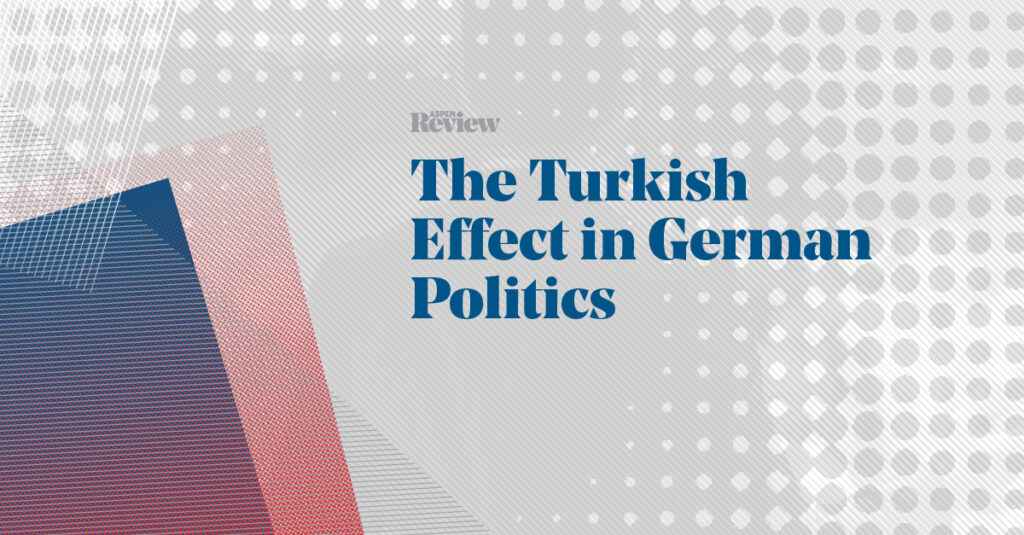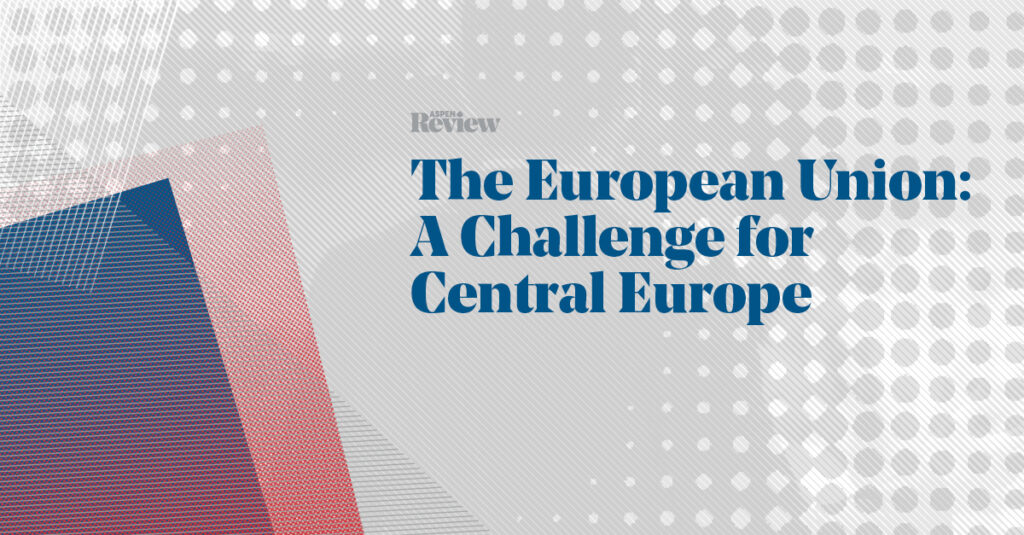Articles
FOREWORD
Dear readers, It is my pleasure to present to you the new issue of the Aspen Review quarterly titled State vs. Economy. The relationship between state and economy has always been a topic of heated debates among politicians, economists, businesses and expert community. What is the right proportion of state interference in economy? How much…
FOREWORD
Dear readers, Let me present you the spring 2015 issue of the Aspen Review quarterly. “Left is back” analyzes the dynamics behind recent successes of leftist political parties in Europe. It also reveals a dramatic shift between ideas traditionally associated with leftist political thought and the main features of the left today. After several years…
FOREWORD
Dear readers, I have the pleasure of introducing to you this winter’s issue of the Aspen Review quarterly. It encourages you to explore the topic of digital agenda, and contemplate on how the Internet and new technologies transform our economy, politics and society. The impact of the Internet and new technologies on the economies in…
FOREWORD
Dear readers, Welcome to a new issue of the Aspen Review Central Europe dedicated to China-Europe “silk” connection. China has become a pivotal global economic partner to the US. In parallel, it has become an increasingly important trade and investment partner for the European Union and primarily for Germany, the UK, and France. A critical…
FOREWORD
Dear readers, In this issue of Aspen Review Central Europe we present a series of articles about innovation reflecting from various perspectives a narrative about innovation in our region. Is not a discourse about innovation policy too detached from facts? By innovation we mean a process of introducing new ideas, devices, or methods, translating an…
Pebbles
Stefania Wilczyńska and Henryk Krzeczkowski were divided by thirty years of age, gender, temperament, vocation. What they shared was the experience of the world war, the mill of totalitarianisms, the Holocaust, the Jewish roots combined with a full immersion in Polish culture and identity. What they also had in common was separateness: a tendency to…
The Decline of the Communist Foreign Intelligence Service
Although more than twenty-five years had passed since the fall of the communist regime in Czechoslovakia, not a single comprehensive scholarly study focusing on the history of the country’s foreign intelligence has yet been written. Last year the Institute for the Study of Totalitarian Regimes published a book entitled The Czechoslovak Secret Service and the…
Czech Matters in Gustaw Herling-Grudziński’s Journal
Gustaw Herling-Grudziński (1919-2000), eminent Polish novelist and essayist, author of a testimony about Soviet labor camps called A World Apart (1951), and a long-time contributor to the magazine Culture published in Paris, belonged to those 20th-century Polish writers who were very much interested in the fate of the nations conquered and enslaved by the Soviet…
One-Track Bind
By now you have heard that history did not end in 1989, yet for nearly a quarter of a century there were plenty of people who behaved as if it had. Whether it be the expansion of NATO, the European Union, multinational corporations, global trade, or the integration of technology in our daily lives, there…
Smart Policies?
A recent set of surveys that the Aspen Institute Prague has conducted with partners in Poland and Slovakia attempted to describe the start-up ecosystem in the region. Apart from establishing a profile of an average startupper and deciphering their business models, the studies also sought to answer the questions of how start-ups in the region…
Partnership and Cooperation—a Challenge for Democratic Cities in the 21st Century
Miami, Florida. My colleague Matúš and I have a few minutes to spare, so we set off to explore the renowned “art district” not far from downtown Miami. We hail a yellow taxi and the driver confidently navigates the route to the nearby neighborhood: evidently he is used to driving curious tourists there. We get…
Firm-Idea as a Vehicle of the Transition from an Opportunistic to a Relational Market Game
We can see more and more clearly that the concept of corporate social responsibility has its limitations. Its promotion does not significantly prevent market opportunism. The problem is increasingly serious given the fact that in the digital economy negative social consequences of market opportunism can be much more severe than in the industrial economy.
The Ukrainian Economy: A Slow Recovery and Much More to Be Done
Economic stabilization is a big achievement of Ukraine’s post-Maidan government. In 2016, for the first time since 2012, all main indicators grew up, including GDP rise by 1.5 percent. In spite of these positive trends, the Ukrainian economy is still fragile and its long-term growth will depend on systemic reforms.
Improperty and the Rich
How-to-get-rich books and videos show no sign of going out of fashion. Their consistent message is that you are unlikely to get rich just by working hard. What you need is “passive income” based on control of assets like shares, land, and buildings. This is where the smart money goes— and comes.
Donald Trump as a Weather Vane, or Where Global Capitalism is Headed
It seems that president Trump is better than the experts from Washington in recognizing America’s place in today’s world. For him, the US is no longer the center of the global system taking responsibility for the planetary order, but just one of its components.
Polish Eastern Policy under the Law and Justice Government
Many Polish and foreign experts expected that after the parliamentary victory of Law and Justice (PiS) in November 2015, Warsaw would become more active on the Eastern front: that it would strengthen the partnership with Ukraine, take a firm stance against Russia, and actively support the European dreams of Georgians and Moldovans. After one year…

The Turkish Effect in German Politics
Never before have so many seats in the German parliament been held by politicians of Turkish origin. There are thirteen of them, representing every political party. Nevertheless, the Turkish community has yet to be fully integrated into majority society.

The European Union: A Challenge for Central Europe
Central Europe has so far been an evident beneficiary of the European integration. Nevertheless, the transformation of the regional order in Europe seems to undermine the previous advantages more and more.
